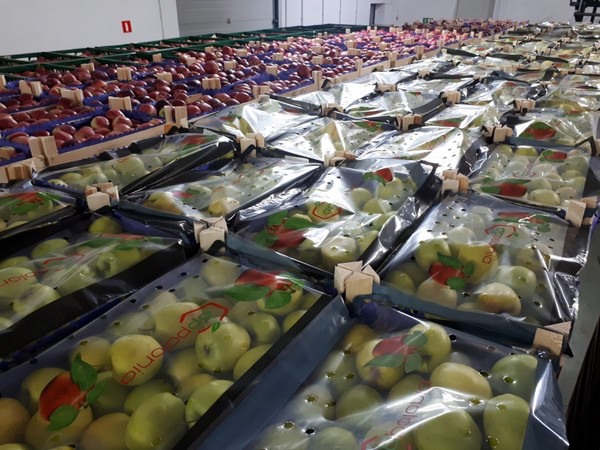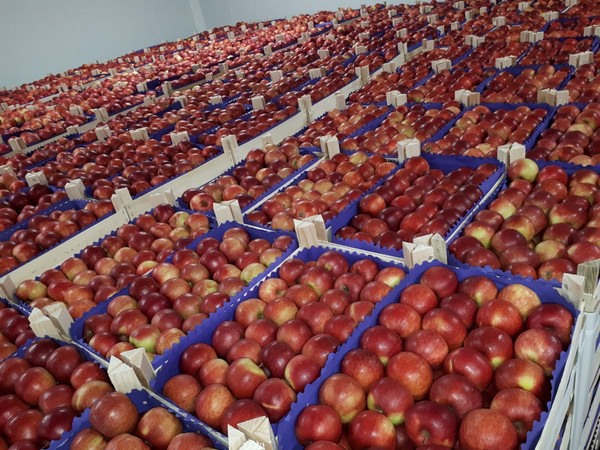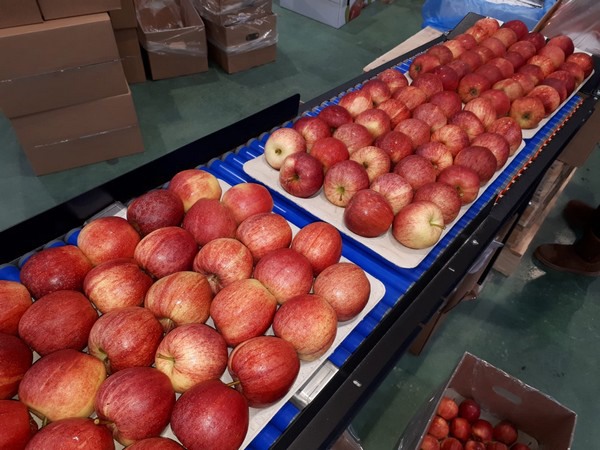It’s been a solid year for Polish apple exporter Appolonia, says export manager Jakub Krawczyk: “In 2021 our turnover was approximately 10% bigger than in 2020, and generally speaking 2021 was a good year for our company. The pandemic situation did complicate many things, but we managed to find the solutions to keep going. Between the previous and the current season there was no gap in terms of sales, so we’ve been able to keep fulfilling orders all year long.”
Despite the challenges of the pandemic, Appolonia managed to reach some new clients and established programs for large volumes, Krawczyk explains. “This year, we started a cooperation with a couple of new customers and we had programs for deliveries of big quantities. We did fulfill all programs, delivered all that was in the plan, for the price that was fixed earlier, so both us and our customers were satisfied with this happy ending. Because of that, we can continue some programs in the coming months and we hope it will also attract new big players on the market to cooperate with us. We want to keep working with customers that are specialized in peeling, cutting and processing apples, and because we are able to deliver very big quantities of quality apples in a short time, we look forward to future contracts.”

Krawczyk feels they’ve managed to achieve what the company wanted for the year, including an investment in a new sorting line: “I say it all the time, but rising costs and inflation were also very challenging for everyone, so 2021 was also a year where we had many unexpected, rapid pricing increases. There was a lack of material and many times low availability of the transport. On a positive note, we had a plan to finish and open a new sorting line in 2021, and we achieved that. This means that in 2022 we will be able to sort 20,000 tons a year more than this year! The new line is dedicated for faster and easier production of apples in a bushel box, so our target is to support more volumes to our partners in Asia, mostly.”
Egypt has become the biggest importer of Polish apples, says Krawczyk: “All the time we see increasingly strong interest from customers in the Egyptian region. It’s a good market to sell our products to, because almost all varieties can be shipped there. Their preference of calibers fits into our standards and also the required way of sorting is on a normal level, so generally almost everyone can prepare an order for Egyptian clients.”

Polish exporters will need to face the difficulties with the political situation at the border with Belarus, says Krawczyk “The new embargo for EU products that will start from January in Belarus will affect the trade in a very bad way, and naturally we’re very upset that we will not be able to work with our customers in Belarus anymore. The country is one of the largest importers of Polish apples, so everyone can imagine how big of a loss it is. We’re always open to work with our Eastern partners, but unfortunately political decisions are closing doors for us. In these situations, we need to work harder on other markets to compensate the loss caused by embargo.”

“We think that it would be the best if we could focus on producing better quality apples, even at the cost of lowering the whole production. Also focusing on only Polish club varieties would be a good idea, it could give us extra value in the future. Because production of apples in Eastern Europe is increasing rapidly, mostly in Belarus, Ukraine, Russia, Moldova, we also need to focus on some more international varieties, because varieties that are accepted in East Europe are getting less popular every year. By applying more programs for international varieties we could achieve higher profitability.” Krawczyk concludes.
For more information:
Jakub Krawczyk
Appolonia
Tel: +48 785 342 930
Email: jakub.krawczyk@appolonia.pl
www.appolonia.pl
